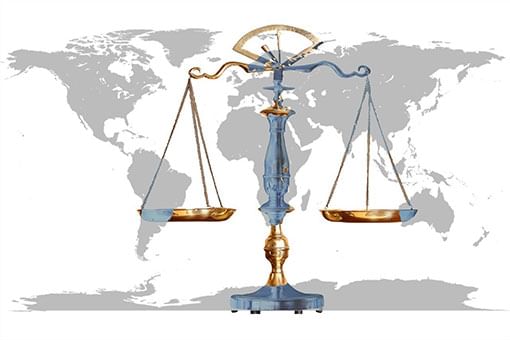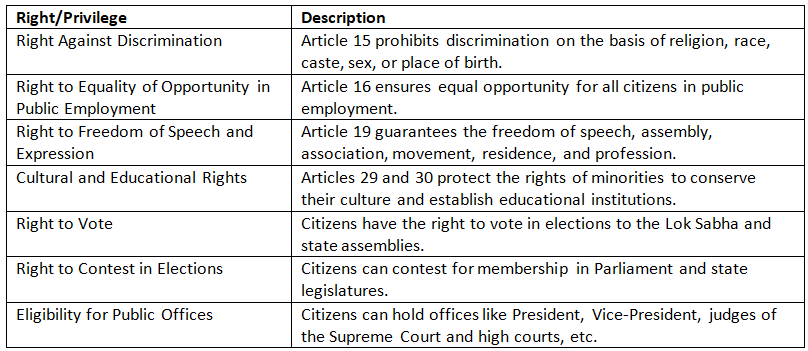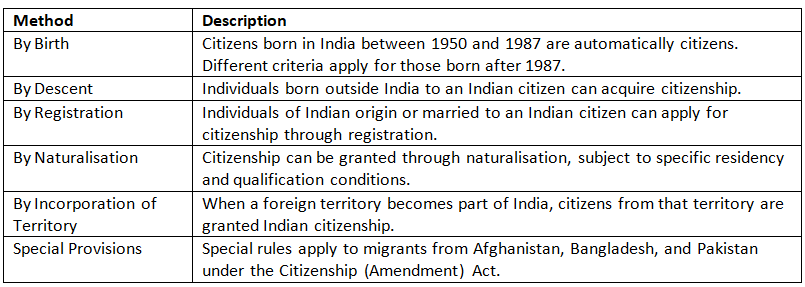Cheat Sheet: Citizenship | Indian Polity for UPSC CSE PDF Download
Introduction
This document provides a detailed chronology of the concepts and legal provisions related to citizenship in India. It covers the various categories of citizens and aliens, the significance of single citizenship, constitutional provisions regarding citizenship, and the procedures for acquiring and losing citizenship. The document also discusses the development of laws under the Citizenship Act and provisions related to Overseas Citizenship of India. The information is presented in a way that allows for quick revision, with clear tables outlining the important events, amendments, and legal processes.
Categories of People: Citizens and Aliens

Rights and Privileges of Citizens in India


Single Citizenship in India

Constitutional Provisions Regarding Citizenship (Articles 5-11)

Citizenship Act, 1955

Acquisition of Citizenship

Loss of Citizenship

Overseas Citizenship of India (OCI)

Conclusion
This chronology provides a comprehensive overview of India's citizenship provisions, including the categorization of citizens and aliens, rights and privileges, and the process for acquiring or losing citizenship. It also highlights the development of laws related to Overseas Citizenship of India, reflecting India's efforts to maintain ties with its diaspora. The evolution of citizenship laws ensures a uniform system for all citizens, fostering unity and national integration while addressing the needs of its diverse population. This structure provides clarity on India's citizenship policies, essential for understanding the nation's legal framework and its approach to global and domestic citizenship matters.
|
142 videos|777 docs|203 tests
|
FAQs on Cheat Sheet: Citizenship - Indian Polity for UPSC CSE
| 1. What is the significance of citizenship in the context of the UPSC examination? |  |
| 2. What are the different types of citizenship in India? |  |
| 3. How has the Citizenship Amendment Act (CAA) impacted the citizenship discourse in India? |  |
| 4. What role does the National Register of Citizens (NRC) play in the context of citizenship in India? |  |
| 5. What are the rights and responsibilities associated with Indian citizenship? |  |

















